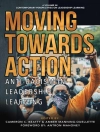Trust is essential to economic and social transactions of all kinds, from choosing a marriage partner, to taking a job, and even buying a used car. The benefits to be gained from such transactions originate in the willingness of individuals to take risks by placing trust in others to behave in cooperative and non-exploitative ways. But how do humans decide whether or not to trust someone? Using findings from evolutionary psychology, game theory, and laboratory experiments, Trust and Reciprocity examines the importance of reciprocal relationships in explaining the origins of trust and trustworthy behavior. In Part I, contributor Russell Hardin argues that before one can understand trust one must account for the conditions that make someone trustworthy. Elinor Ostrom discusses evidence that individuals achieve outcomes better than those predicted by models of game theory based on purely selfish motivations. In Part II, the book takes on the biological foundations of trust. Frans de Waal illustrates the deep evolutionary roots of trust and reciprocity with examples from the animal world, such as the way chimpanzees exchange social services like grooming and sharing. Other contributors look at the links between evolution, cognition, and behavior. Kevin Mc Cabe examines how the human mind processes the complex commitments that reciprocal relationships require, summarizing brain imaging experiments that suggest the frontal lobe region is activated when humans try to cooperate with their fellow humans. Acknowledging the importance of game theory as a theoretical model for examining strategic relationships, in Part III the contributors tackle the question of how simple game theoretic models must be extended to explain behavior in situations involving trust and reciprocity. Reviewing a range of experimental studies, Karen Cook and Robin Cooper conclude that trust is dependent on the complex relationships between incentives and individual characteristics, and must be examined in light of the social contexts which promote or erode trust. As an example, Catherine Eckel and Rick Wilson explore how people’s cues, such as facial expressions and body language, affect whether others will trust them. The divergent views in this volume are unified by the basic conviction that humans gain through the development of trusting relationships. Trust and Reciprocity advances our understanding of what makes people willing or unwilling to take the risks involved in building such relationships and why. A Volume in the Russell Sage Foundation Series on Trust
Elinor Ostrom & James Walker
Trust and Reciprocity [PDF ebook]
Interdisciplinary Lessons for Experimental Research
Trust and Reciprocity [PDF ebook]
Interdisciplinary Lessons for Experimental Research
Compre este e-book e ganhe mais 1 GRÁTIS!
Língua Inglês ● Formato PDF ● ISBN 9781610444347 ● Editor Elinor Ostrom & James Walker ● Editora Russell Sage Foundation ● Publicado 2003 ● Carregável 3 vezes ● Moeda EUR ● ID 5375918 ● Proteção contra cópia Adobe DRM
Requer um leitor de ebook capaz de DRM












